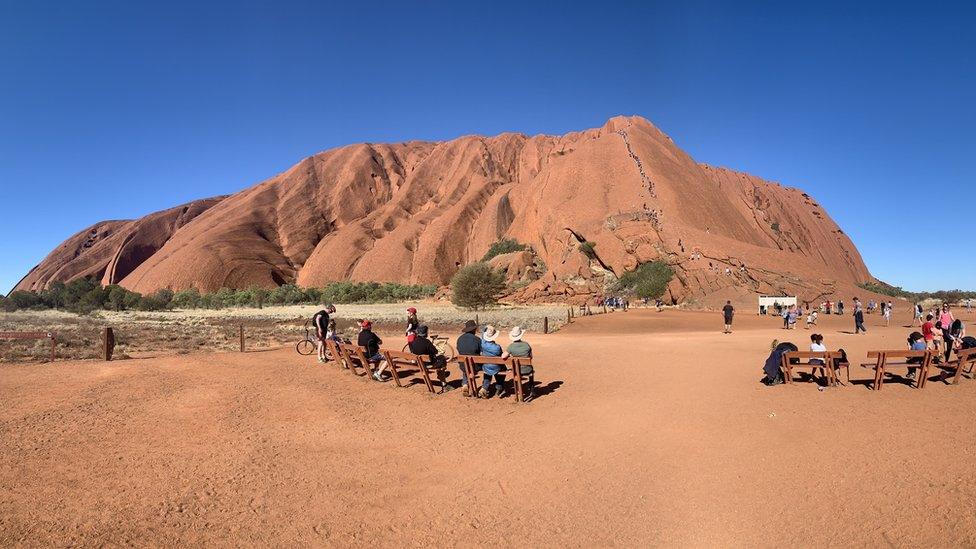Uluru tourists draw controversy ahead of climb ban
- Published

Visitors will not be allowed to climb Uluru from October
Tourists to Australia's Uluru have drawn controversy for seeking to climb the sacred indigenous site in the months ahead of a ban on the practice.
Photos circulating online show lines of people snaking up Uluru, with some social media users comparing it to recent scenes on Mount Everest.
It has been criticised as disrespectful to Aboriginal people, who have long asked tourists not to climb.
Locals say some tourists are dumping waste and camping illegally nearby.
In 2017, the board of the Uluru-Kata Tjuta National Park voted unanimously to end the climb because of the spiritual significance of the site. The ban will come into effect in October.
The giant red monolith, known previously as Ayers Rock, has seen a rise in visitors since the decision was announced.
Allow X content?
This article contains content provided by X. We ask for your permission before anything is loaded, as they may be using cookies and other technologies. You may want to read X’s cookie policy, external and privacy policy, external before accepting. To view this content choose ‘accept and continue’.

Glenn Minett, who photographed crowds on Uluru this week, told the BBC that a nearby campground appeared to be "bursting at the seams". He added that several tourists had also been camping in truck stops in the area.
"There is only one toilet block at the base of Uluru and the drains were blocked," he said.
Tourism Central Australia chief executive Stephen Schwer told the ABC that an "influx of drive travel" had generated increased waste, external.
"[Visitors] think they're doing a good thing by free camping along the way; what they are actually doing is trespassing on pastoralist and joint-managed and protected land, and a lot of people don't seem to be getting that message," he said.
Photos cause anger
Many online criticised the climbers for not respecting the wishes of the Anangu people, the custodians of the land.
One critic, Sally Rugg, tweeted: "Can you imagine if people started climbing over the Australian War Memorial?"
This year marks 31 years since Uluru was given back to the indigenous people
Signs at the beginning of the climb request people abstain from going up as a mark of respect.
"It is an extremely important place, not a playground or theme park like Disneyland," board chairman and Anangu man Sammy Wilson said in 2017, when the ban was announced.
Parks Australia said the park received 70,000 more visitors in 2018 than it had the previous year. Statistics for recent months are not yet available.